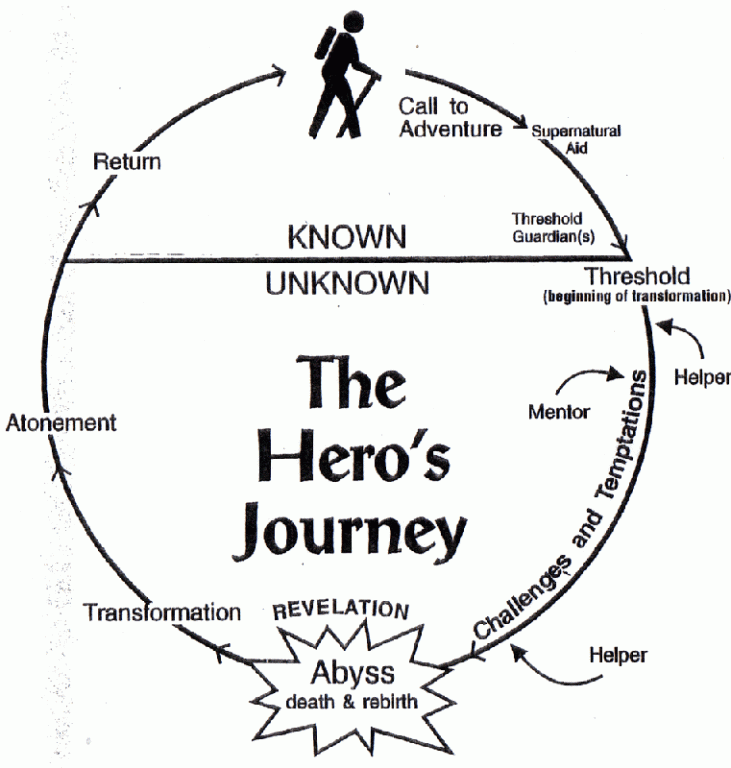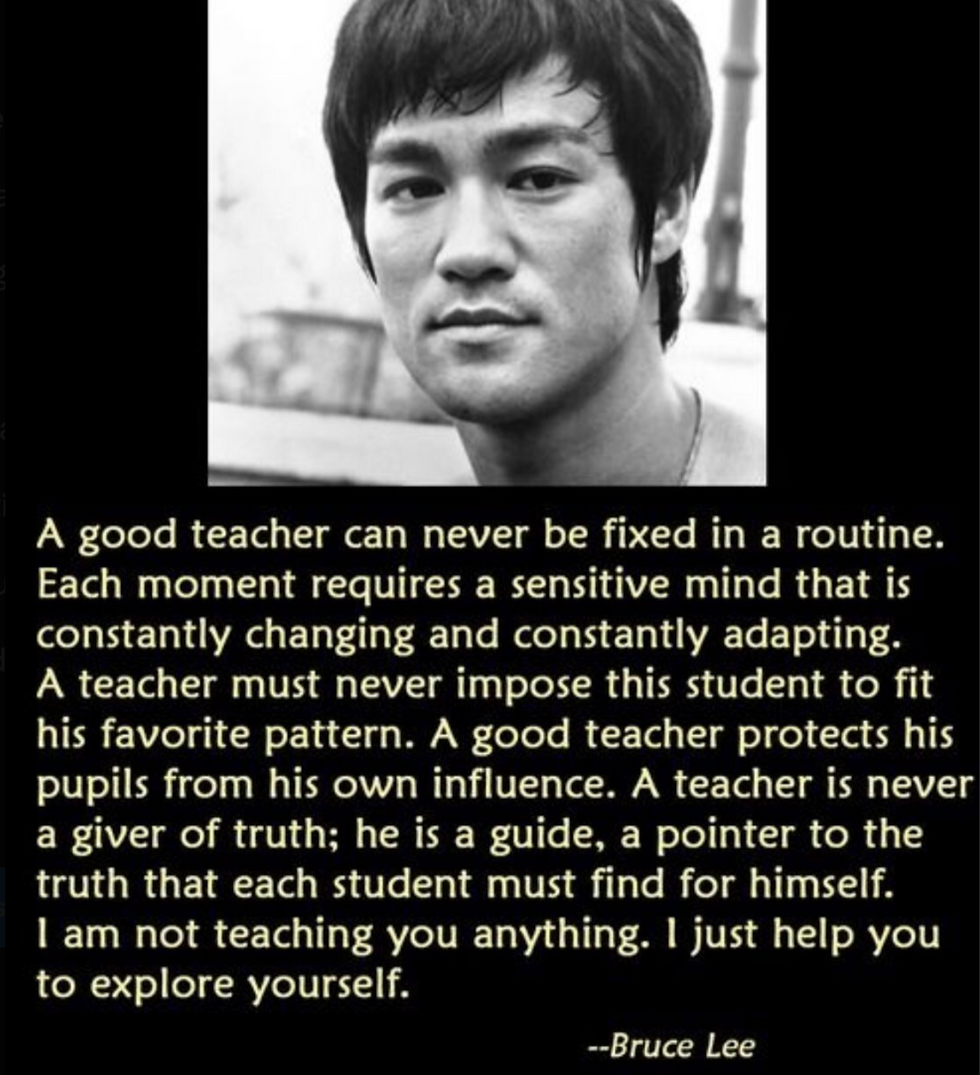
I started taking my health seriously when I was 29 years old.
The catalyst? Infertility.
Anyone who has experienced infertility will immediately resonate with the emotions that go along with it - you bounce around from frustration, to anger, to despair like some kind of hellish pinball machine.
It was the most grueling struggle of my life, and yet, looking back, it was also the best thing that could have happened to me.
It was what launched me on my health journey, which has been, in a very profound way, the journey of my life and the crucible that has forged a stronger character in me.
It also, ultimately, led us to go on a different journey - the journey of adoption.
If I had gotten what I wanted - a quick, easy pregnancy - I never would have gone on this adventure.
The lesson?
You don’t need easy answers. You need to go on an adventure.
Principles, not methods
I talk about principles and methods a lot. One of my favorite quotes of all time is from Harrington Emerson:
As to methods there may be a million and then some, but principles are few. The man who grasps principles can successfully select his own methods. The man who tries methods, ignoring principles, is sure to have trouble.
Sidenote: this quote is often attributed to Ralph Waldo Emerson, but this seems to be a misattribution.
The idea here is that there are nearly infinite ways to accomplish a single goal. If you understand general principles about how things work, you have a way of filtering signal from noise. You’ll be able to discern what methods and tools may be useful in which situations, and which should be ignored.
In the nutrition world, people mistake methods for principles all the time.
Here’s an all-too-common example:
Someone loses 100 pounds on a keto diet.
They then conclude that keto is the superior weight loss method, not just for them in their particular situation, but for everyone in all situations.
Keto was a largely positive part of my health journey as well. It was indeed tempting to jump to the conclusion that keto was the ultimate way for everyone to lose weight and improve their metabolic health…but something in me told me to stop, peel back the curtain, and try to understand the underlying principles of why keto works (and why, sometimes, it doesn’t).
That investigation leads to the discovery of universal principles that can be applied in a myriad of ways.
Embrace struggle
One of the issues with getting married to particular methods is that it leads to an unrealistic expectation that if you just follow the perfect method, you will be exempt from struggle.
If you (even subconsciously) buy into that unrealistic expectation, you’ll conclude that you’re doing something wrong when your preferred method stops working.
To use the keto example again, if keto is the one true diet for everyone, then it is always the answer to every problem you have and you close yourself off to different approaches.
(Not losing weight? Just “keto harder!”)
There’s a better way to look at this whole process. It’s called the Hero’s Journey.
“Greek, Mesopotamian, Buddhist, Norse, Christian, Hindu, and ancient Egyptian mythology all have some version of what Joseph Campbell called ‘the hero’s journey.’ The hero exits the comfort of home for adventure. He’s hit with a challenge. It tests his physical, psychological, and spiritual fortitude. He struggles. Yet he manages to prevail. He returns with heightened knowledge, skills, confidence, and experience, and a clearer sense of his or her place in the world” (from Michael Easter’s The Comfort Crisis).

Struggle, confusion, paradox, and uncertainty are like an “X” on your “Hero’s Journey” map.
This is your sign: “Stop here and dig! This is where the treasure lies!”
But someone who is married to methods will follow a different route:
First, denial that their foolproof solution isn’t working (i.e., they stop losing weight on keto but don't want to admit it).
Next, a conclusion that they must be broken (because they weren’t expecting to hit a roadblock).
Third, either a complete abandonment of the journey altogether (”I’m just not cut out for this health stuff”) or a doubling-down on what wasn’t working (”I’ll just keto harder”).
The deeper point is that you’re on this journey not just to achieve a specific goal, but to become a better person through the journey. And if you’re committed to the journey, expect that there will be obstacles. It’s part of the adventure.
By the way, a coach can be very useful in this whole process. But look for a coach who doesn’t try to sell you on a singular method, but wisely guides you as you traverse your own “Hero’s Journey.”

Process-oriented, not outcome-oriented
To succeed on your Hero’s Journey, you need to shift what you find valuable. You need to avoid being fixated on a specific outcome, and instead become obsessed with the daily process.
In my own health journey, I started with a desired outcome - to get pregnant.
But guess what? I never did achieve this outcome. In fact, in order to grow as a person, I actually needed to let go of that outcome and accept that there was a better way for us to achieve parenthood (one of the best decisions we ever made!).
But think about it - if all I cared about was the outcome I thought I wanted, I would actually look back and see the whole thing as a failure because I never did get pregnant.
At first, improving my nutrition and fitness and overall health was all in service of that all-consuming goal - to get pregnant.
Now, that is no longer my goal, but I’m still here, following the processes that I’ve found helpful in improving my health…for entirely different reasons.
Don’t get me wrong - desired outcomes (goals) are useful. But it’s a bit like setting a destination in a GPS - you decide where you ultimately want to end up, then you forget about it and simply focus on driving.
On a day-to-day and moment-to-moment basis, you’re focusing on habits - simple behaviors that add up and compound over time.
One day at a time.
One workout at a time.
One early bedtime at a time.
One meal at a time.
It becomes almost meditative to lose yourself in daily life. It’s the way to actually enjoy the process of living, instead of holding on so tightly to some future version of you.
James Clear puts this very well:
“Many people view their habits and routines as obstacles or, at the very least, obligations to get through. Making the morning coffee, driving your kids to the next activity, preparing the next meal — we often see our routines as chores to be completed.
But these are not moments to be dismissed. They are life. Making coffee can be a peaceful ritual — perhaps even a fulfilling one — if done with care rather than rushed to completion. It’s about the amount of attention you devote to these simple moments, and whether you choose to appreciate them or bulldoze through them on the way to the next task.
Find the beauty and joy in your daily rituals and you will find beauty and joy in your daily life. To love your habits is to love your days, and to love your days is to love your life” (from the 3-2-1 email newsletter).
Fall in love with the outcome, and you’ll fester in discontent.
Fall in love with the process, and you’ll live with gratitude and peace.
Conclusion
What you think you need isn’t usually what you actually need.
You might think you need to lose 30 pounds…and you might be right about that.
But ultimately, what you need isn’t that 30 pounds of fat to be gone, per se. If that was really what you needed, why not just take a pill? Take a shortcut?
No — what you need is meaning and adventure.
What you need is to “face up to your problems whatever they are” and in so doing, become all you were made to be.
What you need is your own Hero’s Journey.
).png)

Comments